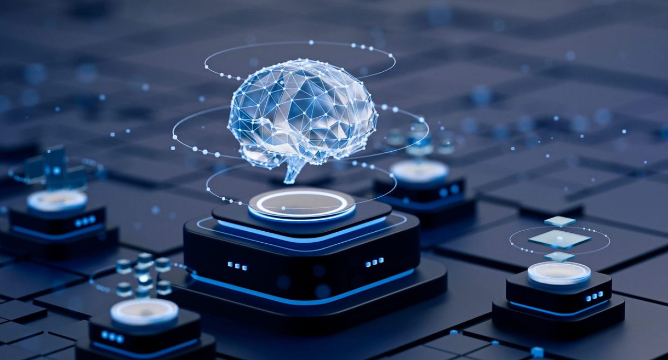The real estate industry is undergoing a digital transformation, with AI and blockchain technology redefining property investment, transactions, and management. By 2025, smart real estate solutions will enhance efficiency, transparency, and accessibility in the housing market. Let’s explore how these emerging technologies are revolutionizing property investment.
How AI is Transforming Real Estate
- AI-Powered Property Valuation
Machine learning algorithms analyze market trends, location data, and historical sales to provide precise property valuations. - Smart Contract Automation
AI streamlines lease agreements, mortgage approvals, and transaction verifications, reducing paperwork and fraud risks. - Predictive Analytics for Market Trends
AI-driven models forecast property appreciation, rental demand, and optimal investment opportunities using big data analysis. - AI Chatbots & Virtual Assistants
Real estate agencies use AI chatbots to enhance customer service, schedule property tours, and answer buyer inquiries. - Automated Property Management
AI simplifies tenant screening, maintenance requests, and rent collection, reducing costs for property owners.
The Role of Blockchain in Property Investment
- Tokenization of Real Estate Assets
Blockchain enables fractional ownership, allowing investors to buy and sell digital shares of properties globally. - Decentralized Real Estate Transactions
Smart contracts execute secure, automated, and tamper-proof transactions, eliminating intermediaries. - Immutable Property Records
Blockchain ensures transparent and secure property records, preventing fraud and ownership disputes. - Cross-Border Real Estate Investment
Blockchain removes barriers to international property investment, providing a seamless buying experience. - Reduced Transaction Costs & Time
Digital transactions eliminate middlemen, reduce fees, and speed up closings, benefiting both buyers and sellers.
Challenges & Considerations
Despite its potential, the integration of AI and blockchain in real estate faces hurdles:
- Regulatory Barriers: Governments are still adapting policies for digital real estate transactions.
- Cybersecurity Risks: Protecting blockchain databases and AI systems from cyber threats.
- Market Adoption: Traditional investors may be slow to trust new tech-driven property solutions.
The Future of Real Estate Tech
By 2025, AI and blockchain will increase liquidity in the real estate market, streamline transactions, and create new investment models. From tokenized real estate funds to AI-powered smart contracts, these innovations will drive a more transparent and efficient property industry.
Conclusion
AI and blockchain are revolutionizing real estate investment, offering faster, safer, and more accessible property transactions. As these technologies mature, investors who embrace digital transformation will gain a competitive advantage in the evolving market. The future of real estate is tech-driven, decentralized, and AI-powered.





